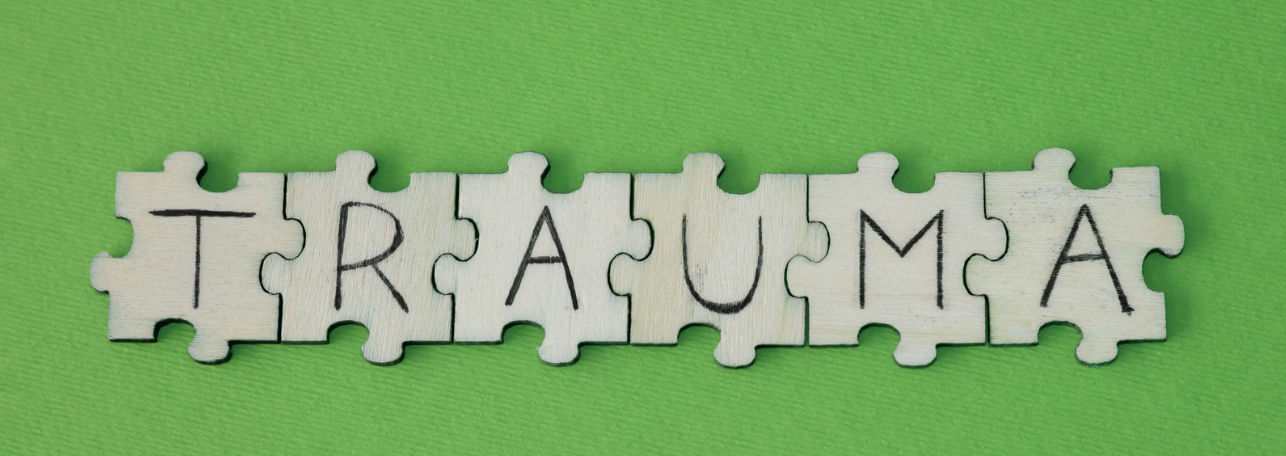In the beginning of April, I participated in a NEDA chat about eating disorders, body image issues, and how they affect me as an autistic woman. After the chat, I had so many thoughts swirling around in my brain. The questions and answers brought forth memories long forgotten.
Trigger warning: Mentions of eating disordered behavior.
As a young child, I do recall not having a very positive relationship with food. How much this contributed to my body image issues, I don’t know, but I know it didn’t help. I was always a very thin, underweight kid. There were always more interesting things for me to do than eat. I don’t think I find the same enjoyment out of eating as other people do. Most of the time, I would eat just enough to make the annoying hungry feeling go away, but not enough to be very full.
I had a certain way I would eat as well. Foods on my plate could not be touching, and certain textures were not okay with me. I would eat only one thing on my plate at a time. I don’t think I can stress this enough to any and all parents of “picky eaters:” do not force them to eat foods they don’t want to eat. Eating is a very intense experience with all of the flavors and textures, and no one has the right to force this experience onto others.
There needs to be a sacred understanding that a person (young or old) has the absolute right to decide what goes into their body. Trying to override that personal right is so damaging that there are few things I can think of that are worse. When we take away a child’s right to navigate their sensory world safely, it can sometimes cause serious anxiety problems later on. I know this from experience.
As I grew older, I became aware that looks seem to matter quite a lot in the world. As a matter of fact, I became quite convinced that if I looked perfect, I’d be better liked. Maybe this came from the bullying in school or the emotional abuse from my family. There is no one thing that I can pinpoint that caused me to begin to hate myself and all that I was from the inside out. All I know is that I recall feeling very disliked. I felt like nothing I did was right, and that I was a huge misfit.
This was the beginning of my lifelong battle with depression. As the gap between me and my peers grew, I became more unsure of myself. I had no self-confidence. I didn’t like myself, and it often seemed like others didn’t, either. I began to turn all of my pain inward. My self-image is a mystery to me. I don’t really know what I look like to others. In the same way that I am face blind with other people, I find that I am to myself, as well. This unstable self-image causes me great anxiety, but not in the way of personality. I find that who I am, what I like, and my code of ethics have always been very strong, even in the face of adversity. This part of my self-image has, and still is unshakeable.
My appearance is a whole different story. Distortions of my size and shape often influenced my eating behaviors. They would rise and fall in severity, popping up in response to anxiety. Or, if I failed to do something correctly, I often felt like I didn’t deserve to eat, because I was a bad person.
When I was a in my late teens, I learned a technique in therapy that changed the way I dealt with my emotions. Of course, it took me years to become proficient at it, but it pushed me along in my journey toward a better life, one that is more emotionally sound. Don’t get me wrong, it wasn’t easy. It was actually very, very hard. At first, I found it impossible. I didn’t feel anything! Or, I’d say I felt angry, because the counselors obviously made me angry, and I was. I had meltdowns, and I even knocked over a chair and swore at them. Trying to learn how to identify my emotional state was incredibly difficult for me.
But with practice, it did get better.
Then, inevitably, I’d find myself in another rut or another therapist’s office a few years later. I’d grab a few new techniques to build onto the old ones. I’d get books about mindfulness and CBT. I’d learn about psychology, because it is one of my special interests, anyway. I’d try different things, and toss what didn’t work.
One thing in particular that did not work was any kind of group therapy. I loathe group therapy. I don’t like talking in front of a lot of people, and I especially don’t like making my private life public like that. I am not terribly social, so I don’t need a lot of the fluff that happens in group therapy sessions. Some people do, and that’s okay. I just don’t.
On the same token, I really don’t find talk therapy very helpful, either. I always found that I had different views on what to do, and that I knew myself better than anyone. What worked best for me was learning some new techniques and coping skills, and applying them on my own. I adapted each technique to meet my needs. I found that long therapy sessions just annoyed me as the therapists always had an agenda that didn’t work for me. I am just someone who does best with some direction, but I’m not in need of someone else to set the structure for things. I’m very independent.
This is not to say that today I am free of all of my disordered thinking. I think that for me, this road to recovery is never-ending. I don’t mean that to sound discouraging. I am so much happier now than I used to be when I was young. I just mean that I still have to remember to apply the self-help techniques when my anxiety is raised, or negative self-talk comes around. When my triggers are pushed, I still fall backward at times. This could last for five minutes or even five days.
There has been quite a lot of trauma in my life. I used to think that I would be able to fully recover from it all. I thought that I could find a place for it, and put it away for good, and that is what healing is. Recently, however, I have realized that healing is learning to successfully manage your demons while accepting that they exist.
So, that is my story. Demons and all.
Shawna Hinkle is a stay-at-home mom diagnosed with Asperger Syndrome, depression, and generalized anxiety disorder. She loves being a mom to her three children and blogs about her adventures in parenting in an atypical household here.






